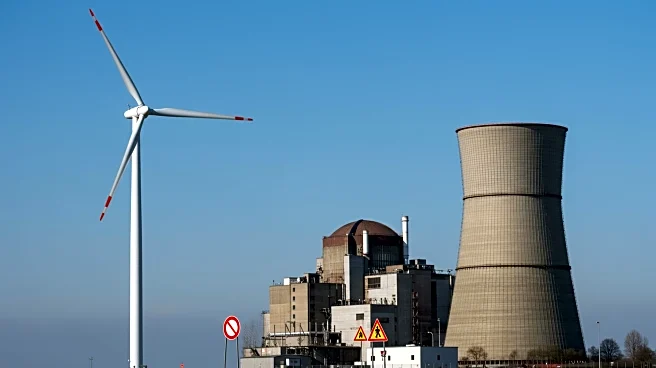What is the story about?
What's Happening?
A referendum in Taiwan aimed at reopening the Maanshan nuclear power plant did not meet the legal threshold required for validation. Despite a majority of 4.3 million votes in favor, the motion needed support from one quarter of all registered electors, approximately 5 million people, to pass. The plant was closed in May as Taiwan shifts towards renewable energy and liquefied natural gas. The referendum was backed by the opposition, including the Kuomintang party, which argued for reliable power supplies and reduced import reliance. President Lai Ching-te acknowledged societal expectations for diverse energy options and did not rule out future use of advanced nuclear energy if safety standards improve.
Why It's Important?
The failure of the referendum highlights Taiwan's ongoing energy challenges and the public's cautious stance on nuclear power due to safety concerns, particularly in an earthquake-prone region. The decision impacts Taiwan's energy policy, pushing further reliance on renewable sources and liquefied natural gas. This shift could influence Taiwan's economic and environmental strategies, affecting industries reliant on stable energy supplies. The outcome also reflects broader global debates on nuclear energy safety and sustainability, with potential implications for international energy markets and policy frameworks.
What's Next?
Taiwan's government may continue to explore alternative energy sources while monitoring advancements in nuclear technology. Future discussions could involve balancing energy security with environmental and safety considerations. Political and civic groups may push for further referendums or legislative actions to address energy needs. The government might also engage in international collaborations to enhance renewable energy infrastructure and technology.
Beyond the Headlines
The referendum's failure underscores the complex interplay between energy policy, public safety, and political dynamics in Taiwan. It raises questions about the role of civic engagement in shaping energy decisions and the influence of political parties on public opinion. The event may prompt broader discussions on the ethical implications of nuclear energy and the need for transparent decision-making processes in energy policy.















